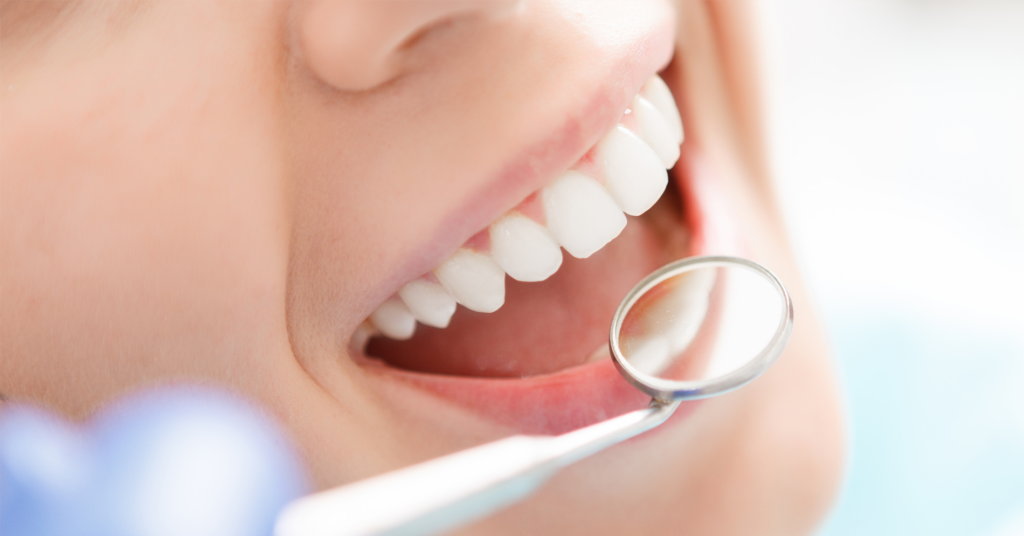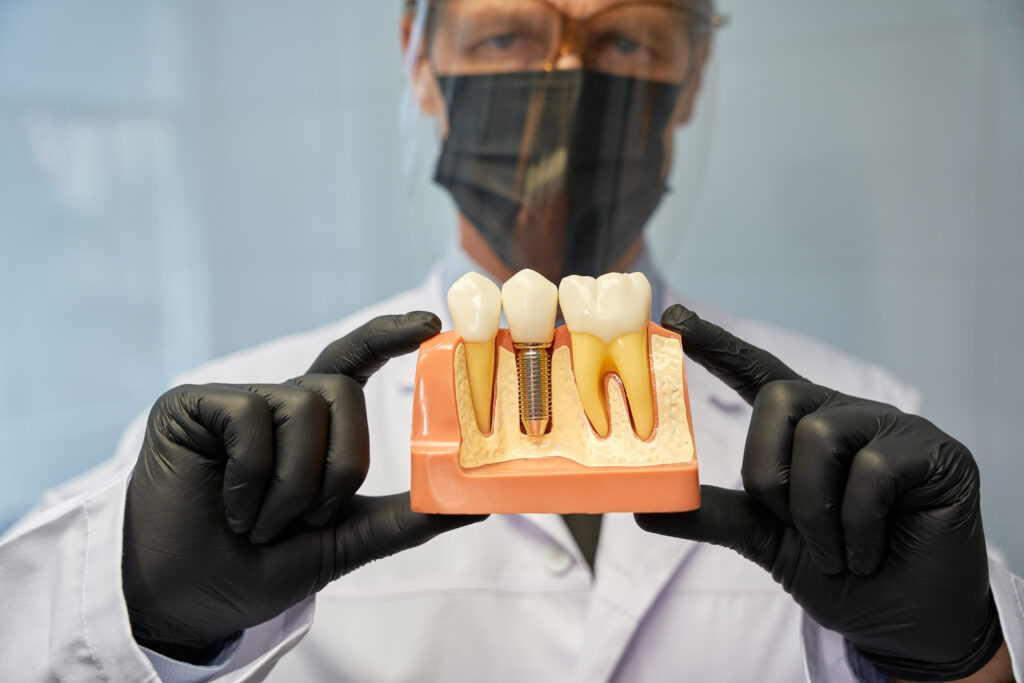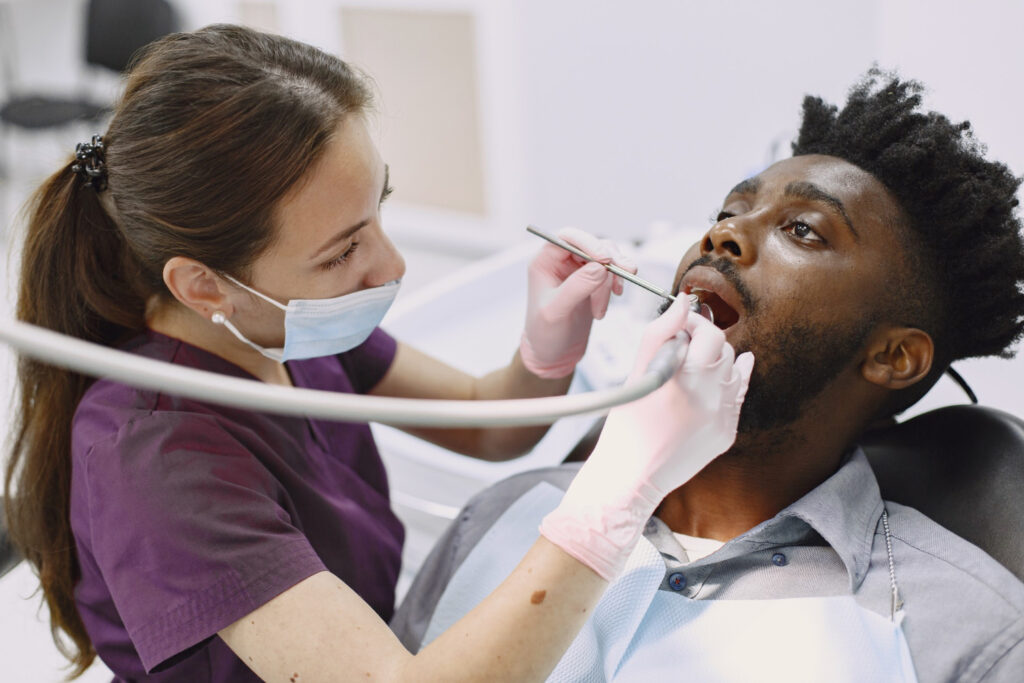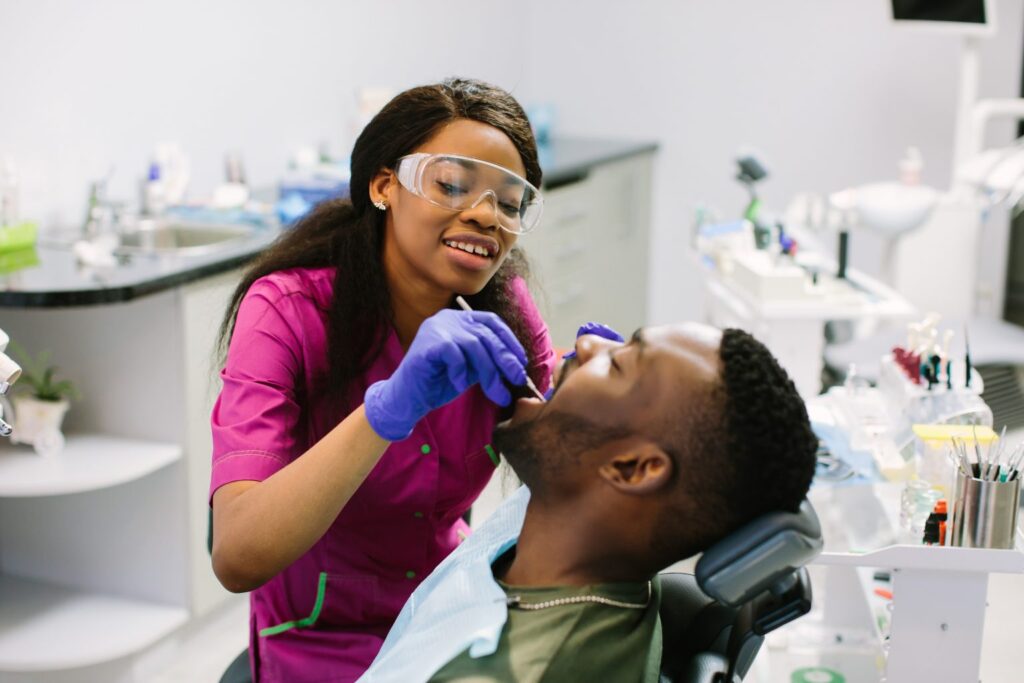
Many of us take the ability to eat all of our favorite foods for granted. You never really notice how vital good oral health is to your daily life until you’re having dental problems.
Whether it’s a toothache, orthodontic appliance, or oral surgery, these issues can make eating many foods tough. Here’s a quick guide on what to eat when you have dental issues.
Braces/Retainers/Other Orthodontic Treatments
After you get your braces tightened, your teeth will hurt for a while. On top of that, your braces are quite fragile.
With these things in mind, you should avoid foods like:
- Hard/chewy candy
- Nuts
- Popcorn
- Gum
- Ice
- Pizza crust
- Bagels
- Whole hard fruit (apples, pears, etc.)
- Fibrous vegetables (eat leafy greens instead)
Here are some food choices that work with braces:
- Scrambled eggs
- Soft fruits/slices (oranges, peaches, etc.)
- Pasta
- Mac & cheese
- Nut butter
- Oatmeal
- Mashed potatoes
- Protein shakes
Canker Sores
Canker sores can’t be cured — you have to wait them out. They’re caused by acidic foods such as citrus fruits, sauerkraut, peppers, and pickles. Some foods you can eat with minimal pain while your canker sores heal include:
- Veggies (cooked, canned, frozen)
- Milk and other dairy products
- Scrambled eggs
- Hot cereals (oatmeal, cream of wheat)
- Creamy nut butters
- Soup
Eat foods that are cool or room-temperature, and mix wet and dry foods.
For faster healing, up to your protein intake. You could make protein shakes or even add protein powder to hot cereals like oatmeal.
Dry Mouth
Dry mouth could be a sign of certain oral diseases. Certain medications and medical treatments may also cause dry mouth. Talk to your dentist if you’re experiencing dry mouth.
As for what to eat or drink, chew sugarless gum or suck on sugarless candy to stimulate saliva flow. Moisten dry foods when possible and avoid spicy/salty foods.
Make sure to hydrate sufficiently. Drink water both with and between meals. If you have trouble remembering to drink water, set a timer on your phone to take a sip every few minutes.
Avoid anything that could dehydrate you as well. For example, stay away from tobacco and alcohol. Don’t drink caffeinated drinks like coffee, tea, or cola, either — caffeine is a diuretic, meaning it will increase the frequency of urination and lead you to dehydration.
Surgery or Implants
Dietary needs post-surgery depend on your nutrition before the procedure, what type of procedure you underwent, and impact on oral function. In general, stick with soft and liquid foods. Make sure they’re packed full of nutrients as well to assist with the healing process.
Some nutrient-dense foods you should eat include:
- Scrambled eggs
- Soft fruits/slices (oranges, peaches, etc.)
- Nut butter
- Oatmeal
- Chicken/tuna salad
- Mashed potatoes
- Protein shakes
- Soft veggies
- Yogurt
Problems Chewing
Many things can cause problems chewing, from tooth loss to cavities, to previously mentioned surgery. If you have issues chewing, speak to your dentist as soon as possible. In the meantime, stick to the soft foods mentioned in other sections.
Problems Swallowing
Swallowing problems could occur from the common cold, but in some cases, they indicate something much more serious. If problems swallowing last, speak to a doctor right away.
In the meantime, consume the softest possible foods and drinks. Protein shakes (or adding protein to other foods) can ensure you get adequate protein without consuming hard foods.
Also, avoid anything spicy or salty to minimize pain.
If you have any more questions, or you’re looking for a dentist in Philadelphia, PA, don’t hesitate to call Absolute Smile! Our professionals are happy to help you with any of your dental concerns.







